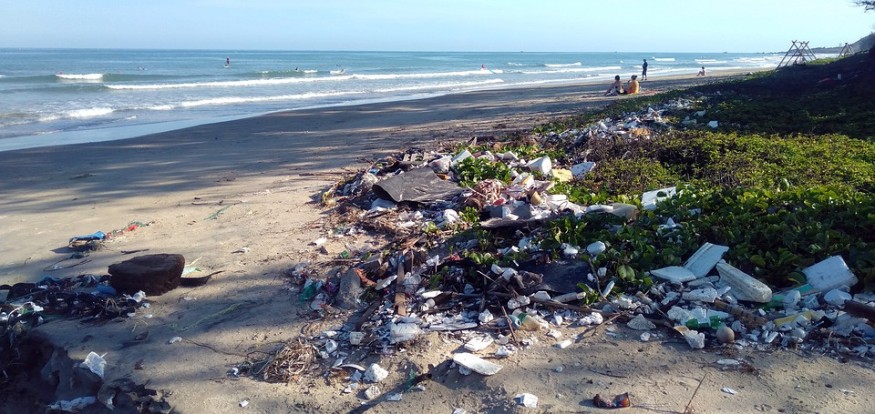
An environmental group, Earth Island Institute has warned that this plastic pollution crisis could lead to more plastics than fishes in the ocean by 2050. The group also filed a case in a California court against the world's biggest food, beverage, and consumer goods companies to hold the companies accountable for the garbage they produced.
Production and development to new plastic products came about after World War II, making way to the modern age where life without plastic would be almost impossible today. Plastics play an important role in improving life-saving devices such as helmets and incubators, revolutionizing space travel including cars and jets, among others.
However, there is a dark side to this development. Plastics have led to a convenient throw-away culture. The majority of these products are plastics bags and food wrappers which account for 40 percent of the plastic produced every year. These single-use plastics are only used for minutes to hours, yet it stays in the environment for hundreds of years.
Approximately 8 million tons of plastic waste are dumped by coastal nations every year and inevitably ends up in the ocean. More alarming is that the production of plastics increased exponentially since the 1950s, wherein only 2.3 million tons of plastics were produced to 448 million tons by 2015. By 2050, plastic production is expected to double. The plastic pollution is so bad that by 2050, plastic in the ocean could overshadow the fishes in the ocean, an environmental group warned.
These tons of plastics cause havoc on marine life, the oceans, and public health. Plastics endanger ocean floors by cutting off oxygen and contributing to dead zones. Large marine life gets entangled by fishnets discarded by fishers. Worst, plastics are mistaken as food and are eaten by marine life. This leads to or bioaccumulation, or the accumulation of food intake in the animal tissue, and are magnified by ingested by larger marine life or worst, death.
To make corporations responsible for this global plastic pollution crisis, Earth Island Institute, an environmental group filed a suit against Coca-Cola, Pepsi, Nestle USA, Procter & Gamble, and six other companies, the world's leading food, beverage, and consumer goods producers in a California court. The groups argue that these companies should be responsible for the plastic packaging that is polluting the oceans, rivers, and streams of California. The Earth Island also asked for unspecified damages and ordered the said companies to clean up its plastic waste that has created a global pollution crisis.
The suit was filed in San Mateo County Superior Court is the first of its kind. It is in response to a rising public outcry about plastic pollution that is creating havoc in the world's oceans, and the measures taken by state and federal lawmakers to force companies to be accountable for the packaging materials in their products which often end up as trash.
Earlier this month, the Break Free From Plastic Pollution Act was introduced by Sen. Tom Udall (D-N.M.) and Rep. Alan Lowenthal (D-Long Beach). The legislation aims to establish a nationwide beverage container redemption program, ban the single-use plastic products, and impose recycled material in the production of plastic bottles and containers.
© 2026 NatureWorldNews.com All rights reserved. Do not reproduce without permission.





